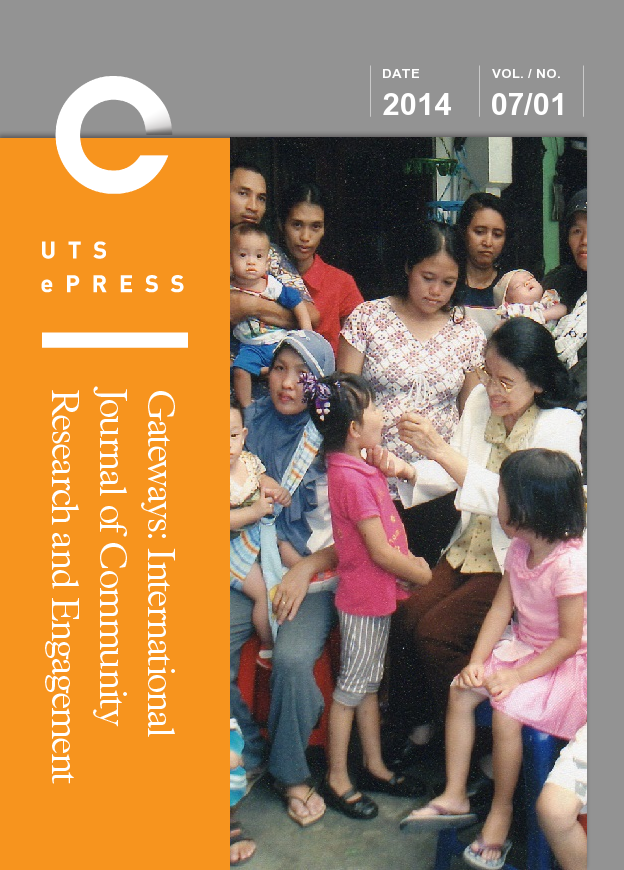Engaging Canadian youth in conversations: Using knowledge exchange in school-based health promotion
Main Article Content
Abstract
The voice of youth is crucial to advancing solutions that contribute to effective strategies to improve youth health outcomes. The problem, however, is that youth/student voices are often overlooked, and stakeholders typically engage in decision-making without involving youth. The burden of chronic disease is increasing worldwide, and in Canada chronic disease accounts for 89 per cent of deaths. However, currently, youth spend less time being physically active while engaging in more unhealthy eating behaviours than ever before. High rates of unhealthy behaviours such as physical inactivity, unhealthy eating and tobacco use are putting Canadian youth at risk of health problems such as increased levels of overweight and obesity, cardiovascular disease and type 2 diabetes. Focus group methodology was utilised to conduct 7 focus groups with 50 students in grades 7–12 from schools in Prince Edward Island, Canada. The key themes that emerged included: (1) youth health issues such as lack of opportunities to be physically active, cost and quality of healthy food options, and bullying; (2) facilitators and barriers to health promotion, including positive peer and adult role models, positive relationships with adults and competitiveness of school sports; and (3) lack of student voice. Our findings suggest that actively engaging youth provides opportunities to understand youth perspectives on how to encourage them to make healthy choices and engage in healthy behaviours. Attention needs to be paid to inclusive knowledge exchange practices that value and integrate youth perspectives and ideas as a basis for building health promotion actions and interventions.
Keywords: knowledge exchange, youth health, youth engagement
Article Details
Issue
Section
Authors who submit articles to this journal from 31st March 2014 for publication, agree to the following terms:
a) Authors retain copyright and grant the journal right of first publication with the work simultaneously licensed under a Creative Commons Attribution License that allows others to share and adapt the work with an acknowledgement of the work's authorship and initial publication in this journal.
b) Authors are able to enter into separate, additional contractual arrangements for the non-exclusive distribution of the journal's published version of the work (e.g., post it to an institutional repository or publish it in a book), with an acknowledgement of its initial publication in this journal.
c) Authors are permitted and encouraged to post their work online (e.g., in institutional repositories or on their website) prior to and during the submission process, as it can lead to productive exchanges, as well as earlier and greater citation of published work (See The Open Access Citation Advantage Service). Where authors include such a work in an institutional repository or on their website (ie. a copy of a work which has been published in a UTS ePRESS journal, or a pre-print or post-print version of that work), we request that they include a statement that acknowledges the UTS ePRESS publication including the name of the journal, the volume number and a web-link to the journal item.
d) Authors should be aware that the Creative Commons Attribution (CC-BY) License permits readers to share (copy and redistribute the work in any medium or format) and adapt (remix, transform, and build upon the work) for any purpose, even commercially, provided they also give appropriate credit to the work, provide a link to the license, and indicate if changes were made. They may do these things in any reasonable manner, but not in any way that suggests you or your publisher endorses their use.
For Volume 6 (2013) and before, the following copyright applied:
Articles published by UTSePress are protected by copyright which is retained by the authors who assert their moral rights. Authors control translation and reproduction rights to their works published by UTSePress. UTSePress publications are copyright and all rights are reserved worldwide. Downloads of specific portions of them are permitted for personal use only, not for commercial use or resale. Permissions to reprint or use any materials should be directed to UTSePress.
